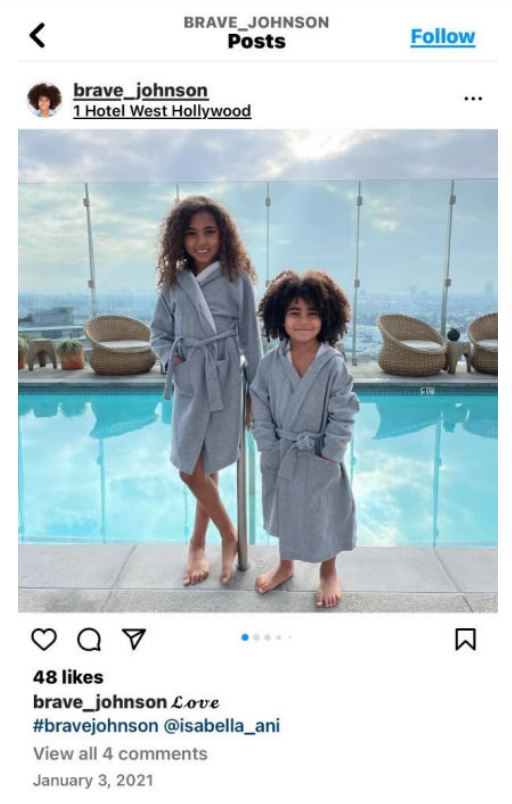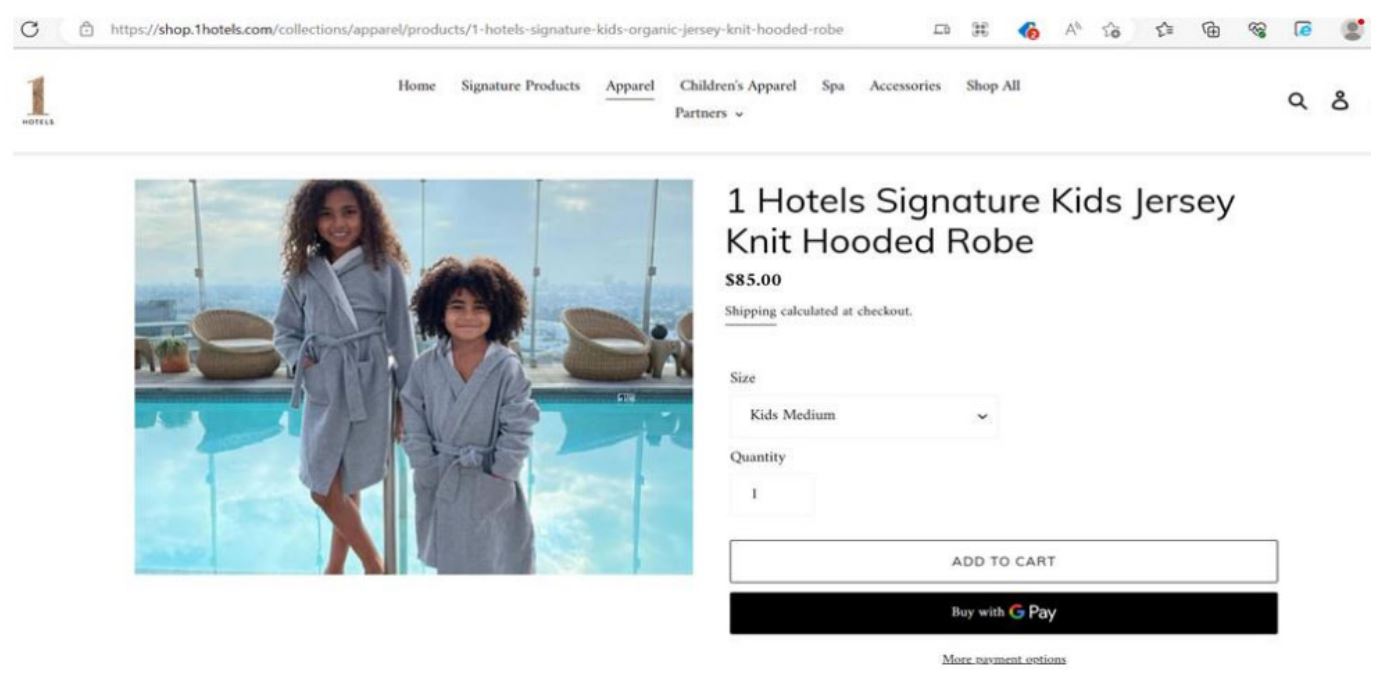Reusing Social Media Photos for Ads? Be Careful!–Khachatryan v. 1 Hotel
This case involves the following photo posted to the “@brave_johnson” Instagram account, which self-describes as the account of a 7-year old and lists 2 URLs for talent agencies:
[Note: normally I would think carefully about posting photos of children, but this photo was posted to the public Instagram account depicting someone who claims to be a model and actor. It does leave open who is actually operating the account for the 7-year-old.]
The photo depicts two children (“Brave” is the one on the right) at the 1 Hotel in West Hollywood wearing the hotel’s branded robes. The court summarizes the allegations:
1 Hotel commented on the post, “We love this photo! Reply to this comment with #sharemy1pic if you’re happy with us sharing your photo on our social channels.” The account of @brave_johnson responded, “@1hotels thank you! #sharemy1pic.”
The account says it’s a 7-year-old’s account, so who did this “consent” come from? If it’s the 7-year-old operating their own account, that’s likely voidable; but if it’s not the 7-year-old, what is the relationship between the account operator and the child? Also, the photo doesn’t reveal who owns the copyright in the photo, but it may not be “Brave.” Did the account operator have the authority to speak on behalf of the copyright owner? Strangely, this opinion doesn’t deal with these consent identity issues.
After receiving “Brave’s” “consent,” the hotel shared the photo on its Instagram account. It then went further and used the photo to promote the robe:
In 2023, Sunny Khachatryan obtained a copyright registration for “Brave’s” photo. The opinion doesn’t explain the relationship between “Brave” and Sunny. The complaint clarifies that the two children depicted are cousins, and they are both child models/actors.
Copyright Infringement. The court says “Plaintiffs’ express assent to 1 Hotel’s use of the photograph therefore created an implied license to use the Photograph on Defendant’s “social channels.”” This is confused. If the consent was legally effective, then it created an express license, not an implied one.
With respect to the question of whether the e-commerce site constituted a “social channel,” the court says that is a fact question sufficient to defeat the hotel’s request for judgment on the pleadings.
CMI Removal. The purported CMI is the Instagram handle, which doesn’t identify the copyright owner (Sunny Khachatryan), so there’s no violation.
Publicity Rights. The court has the same questions about whether the accountholder’s consent extended to the e-commerce usage. Other arguments fail because “there is value in Minor Plaintiffs’ image and likeness, which Defendants then used for the purpose of commercial advertising and sales. Finally, Minor Plaintiffs are clearly prominent in the Photograph, and directly relate to the Defendants’ use: the promotion of robe sales.”
Attorneys’ Fees. The copyright owner didn’t plead the copyright registration was made before the infringement, so it can’t get a 505 fee shift or copyright statutory damages. However, attorneys’ fees for publicity rights violations are still in play.
Implications. The takeaway from this case isn’t novel, but it’s easy-to-state and obviously bears repeating. If you plan to depict people in advertising, you need both copyright and publicity rights permissions. That goes double if kids are involved. The hotel apparently thought it could get away with something less than clear consent from the copyright owner and depicted individuals (or because they were minors, their parents/guardians), and it will likely pay for that corner-cut.
Case Citation: Khachatryan v. 1 Hotel West Hollywood LLC, 2024 WL 3015504 (C.D. Cal. June 14, 2024)


